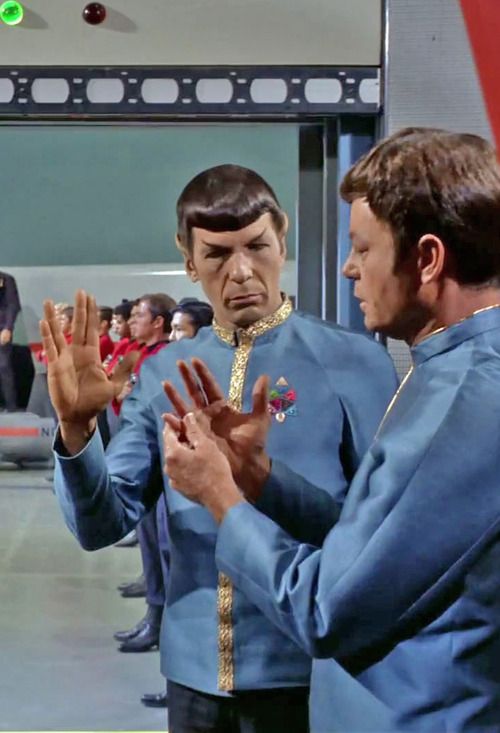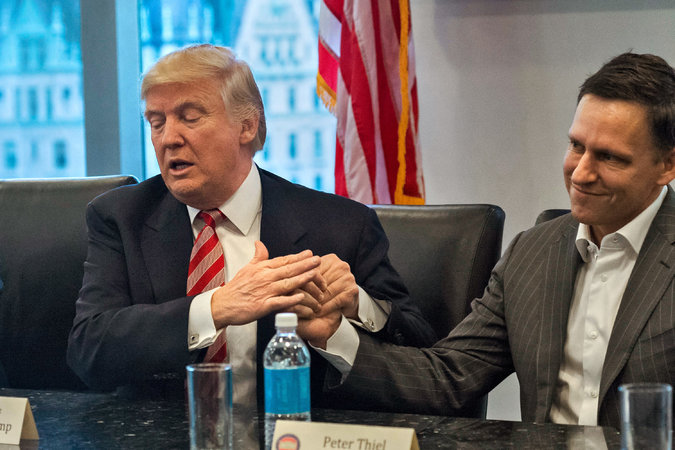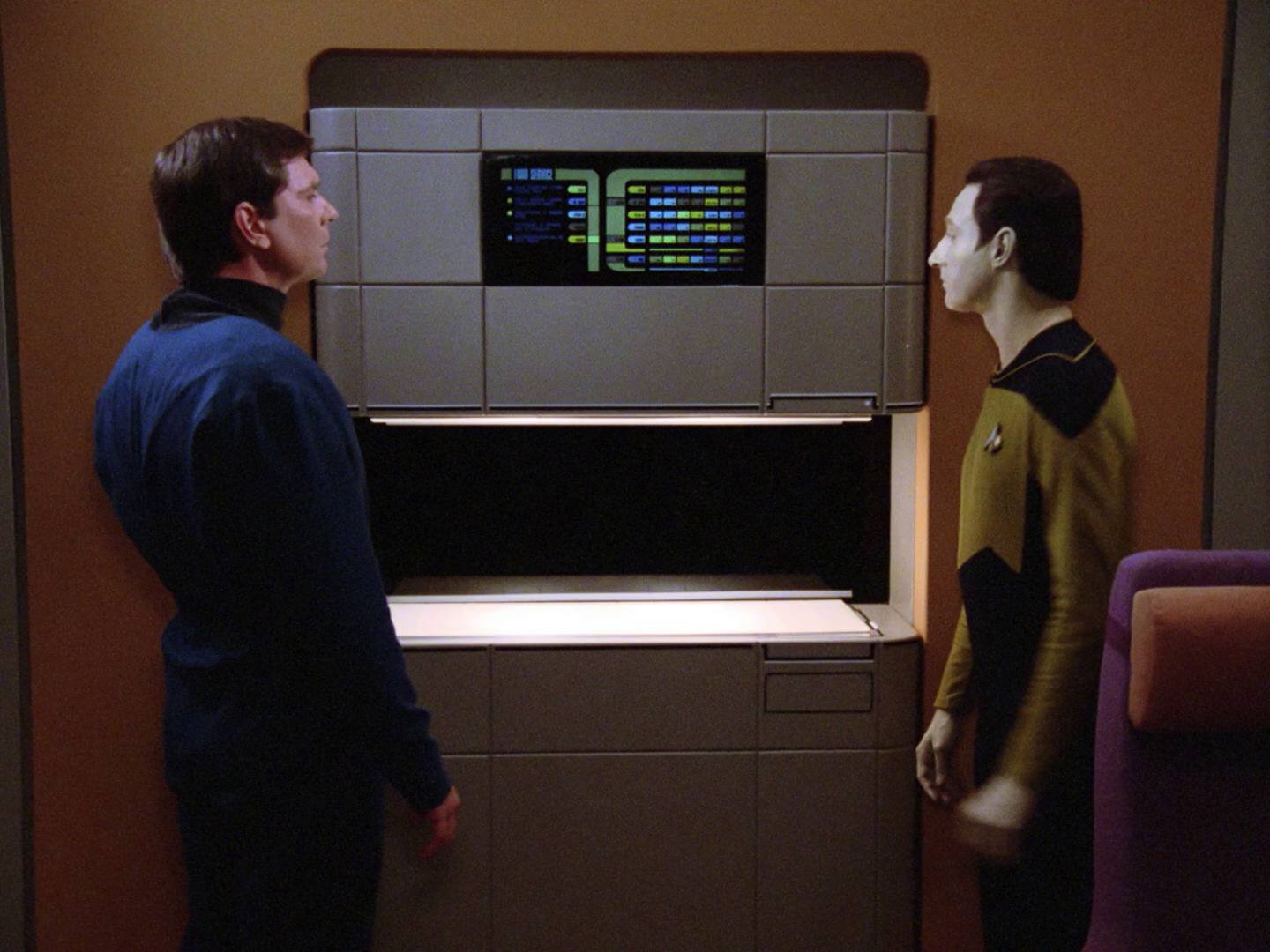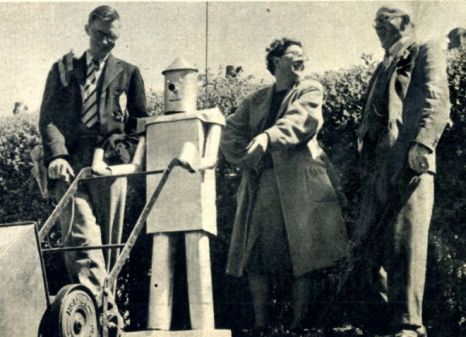“A totally insane bubble full of somewhat sociopathic people in New York,” is how Peter Thiel refers to Gawker, but it’s really an apt description of Trump Tower during the Presidential transition. Steve Bannon, Mike Flynn, Jeff Sessions and all manner of bigots have streamed through the lobby, putting an exclamation point at the end of the most demagogic national political candidacy in modern American history. Wait, is that Chuck Johnson sneaking upstairs via the freight elevator? I don’t know, but it’s not implausible. No matter, it wouldn’t bother Thiel, who won’t let xenophobia, sociopathy or anti-Semitism get in the way of his grandiose, idiotic vision.
Thiel hated bullies like Gawker so much that he drove the site out of business, before backing for the Oval Office a bully who mocks POWs and disabled people. Thiel, a Lyft investor, was so enraged by Uber’s “ethically challenged behavior” that he supported the Presidential candidate with the most ethically challenged behavior since Nixon. Proper manners and good ethics only matter to Thiel when they matter to Thiel. His more consistent concerns are power and money.
You think being a woman, Muslim, African-American or working class will prove more difficult under a Trump Presidency? Well, let me remind you that Peter Thiel is not a woman, Muslim, African-American or working class. He’ll be fine, though he thanks you for your concern.
Thiel is one of those wealthy egotists who’s as sure of his genius as he is full of bold and stupid ideas. He’s exactly the kind of person who can get you killed. The great thinker was certain there were WMDs in Iraq, and now he’s convinced that an unqualified crackpot surrounded by all manner of reprobates is the best choice to safeguard the Constitution. He has a knack for being on the wrong side of history.
Perhaps you’ll be disappointed by what transpires over the next four years, but not everyone is fretting.
“I always have very low expectations, so I’m rarely disappointed,” Thiel says. He’ll be fine.
• • •
In the New Yorker “Elements” blog, Manu Saadia, author of Trekonomics, has a really smart post, “Why Peter Thiel Fears Star Trek,” which explains what it is about the egalitarian politics of Gene Roddenberry’s brainchild that so unsettles the Silicon Valley pseudo-intellectual. An excerpt:
The truth is that, in certain ways, Thiel’s philosophy of tech aligns well with Star Trek. In the Trekiverse, technological progress is inseparable from society and politics. As even quasi-fans will recall, the TV shows and films feature a machine called the replicator, which can produce any inanimate matter on demand—food, drink, warp-drive parts. (In his interview with Dowd, Thiel calls this device the “transporter,” in what can only be a swipe at nerds. Surely he knows better.) The replicator solves, albeit fictionally, what John Maynard Keynes once called “the economic question”—that is, the imbalance between supply and demand, and the resulting need for markets and price mechanisms to allocate scarce resources. The society of Star Trek has decided not to exact a fee for the use of the machine. Thus the replicator can be an engine both for the equal distribution of wealth and for personal enrichment. It does not bring about social change on its own. The post-scarcity world in Star Trek is the result of a political decision, not of pure technological progress.
What is anathema to Thiel in Star Trek is the notion, drawn from Isaac Asimov’s fiction, that the market is but a temporary solution to imbalances in supply and demand, and that technology and plenty will eventually make it obsolete. Star Trek replicators are nothing but Asimov’s robots disguised as coffee machines, let loose on the world as a public good. They dissolve the need for a pricing mechanism. They represent the logical endpoint of the Industrial Revolution, when all human labor has been offloaded onto machines. Star Trek and Asimov remind us that the market and all the behaviors associated with it are temporary and historically contingent. If that is so, then what Thiel thinks of human nature and motivations—that people are competitive, acquisitive, greedy—is temporary and contingent, too.•




